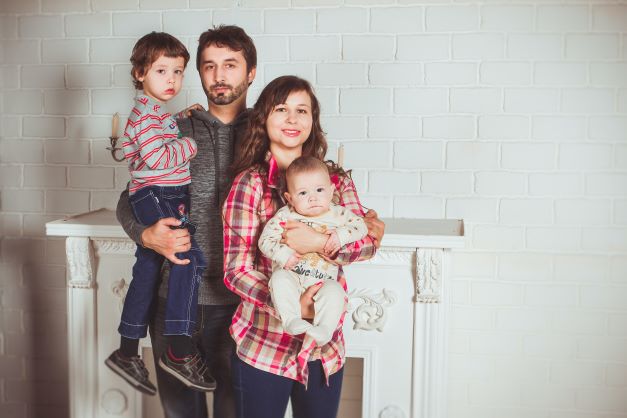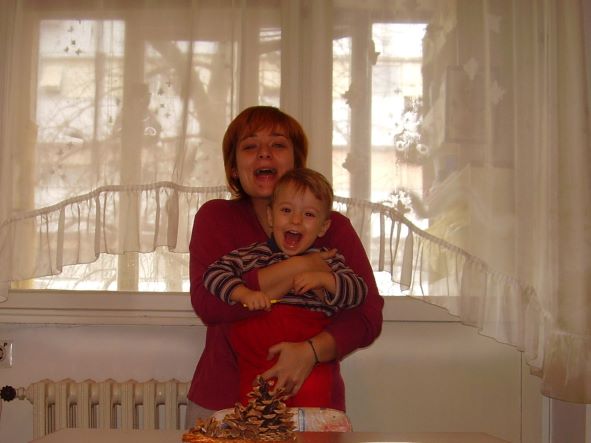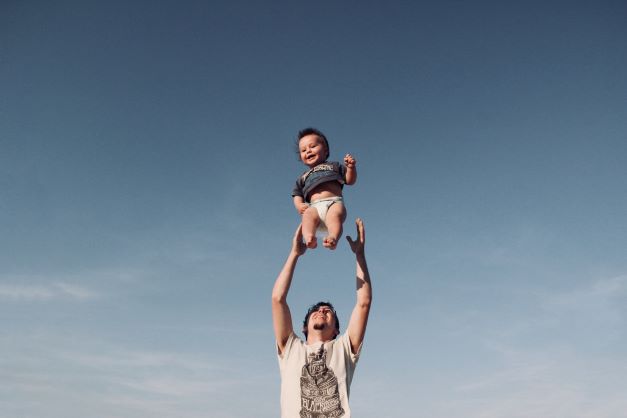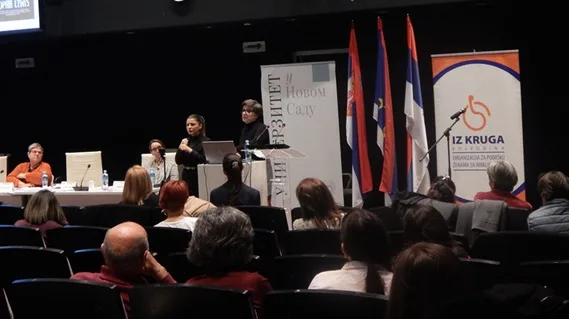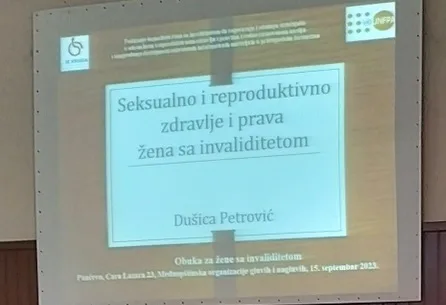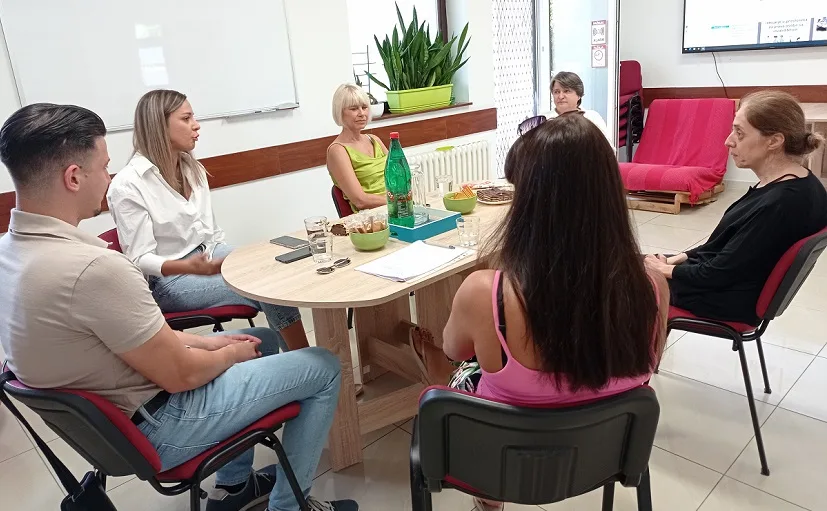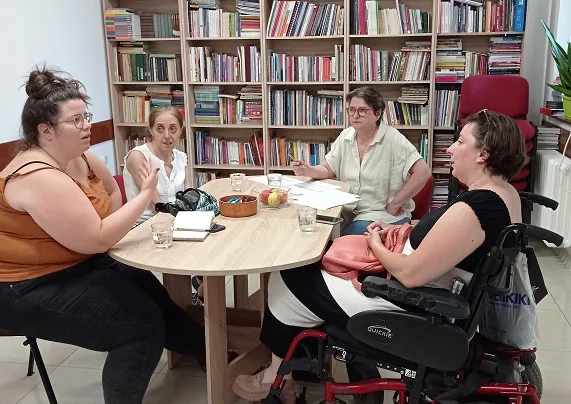When your first baby was born, maybe you did not cope very well at first, but in time you mastered all the things about nurture and care for the little creature. It is how it should be in most cases. Is it always like that? Postpartum is a period that begins after childbirth and is known as the fourth trimester. It lasts four to six weeks (lying in). In a psychological sense, this period might continue up to six months after childbirth. Clinical practice shows that this period, in a given number of cases, represents the introduction of postpartum (postnatal) disorder.
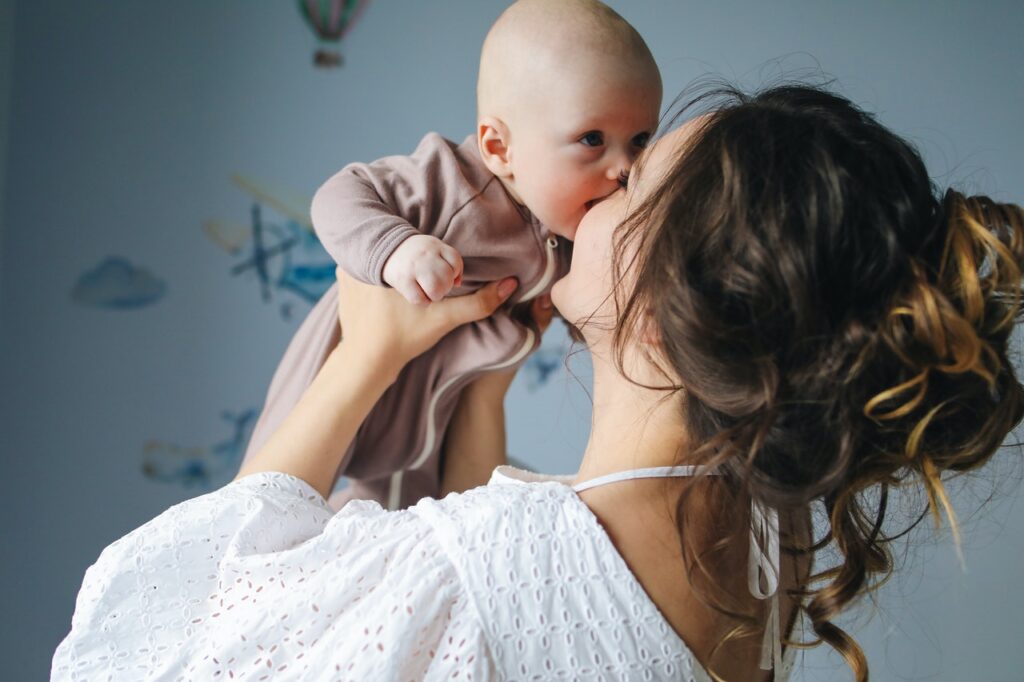
Postpartum psychosis belongs to the group of mental disorders and behavior disorders associated with puerperium.
Three main factors that affect the occurrence of postpartum psychoses: are psychological (how a pregnant woman experiences pregnancy), social (marital status, material situation), and hormonal (a sudden drop in progesterone hormone level).
Although the reasons for the onset and development of the bipolar disorder are not fully determined, recent studies show a link between postpartum psychosis and bipolar disorder as a hidden disability. Studies show that postpartum psychosis can be an introduction to bipolar disorder, as a state of sudden mood changes from depression to euphoria (mania). In other words, postpartum psychosis in its later stages, when it slowly disappears, is followed by bipolar disorder, which is treated with specific medications and psychotherapy. One theory is that bipolar disorder has been dormant before childbirth which was a trigger for the first bipolar episodes, experienced by mothers as psychotic episodes and dramatic mood swings as part of postpartum psychosis.
There are also cases where bipolar disorder precedes postpartum psychosis.
Postpartum psychosis occurs more often in primiparous women, and most of these women did not have a previous positive psychiatric history. It most often happens suddenly in the first 30 days after childbirth.
The most common symptoms are confusion, refusal of food, insomnia, destructiveness, and self-destructiveness (mothers might, in this condition, if it is not identified in time, kill the newborn or commit suicide), and the occurrence of hallucinations and absurd ideas. Members of the family are the ones that notice negative changes in the woman, and they address professionals who diagnose, hospitalize, and administer therapy. Women with postpartum psychosis are lactating, and there is no safe antipsychotic. The decision to artificially stop lactation is made by the family and the doctor, after which the complete administration of therapy starts.
In order for the prognosis of healing to be better, complete cooperation between the family and the doctor is needed. A husband’s support is a requirement for a woman to deal with her problems, accept the child, and return to daily life. However, considering the mentality in this area, it happens that two families, without a real foundation, blame each other for the state of affairs.
The disorder lasts approximately 45 to 60 days and a therapeutic response is favorable. Women with postpartum psychosis have an excellent prognosis, and a large percentage of them completely recover.
To present postpartum psychosis and the appearance of bipolar disorder after it, as well as the existence of bipolar disorder before the occurrence of postpartum psychosis more plastically, we will describe two experiences; my friend Ana Jovanovich’s story and mine.
Ana had bipolar disorder before postpartum psychoses that happened after her second childbirth. I got postpartum psychosis after my first childbirth. A few years later, I was diagnosed with bipolar disorder.
We don’t report these two cases to state that bipolar disorder is necessarily a cause of postpartum psychosis, nor that after postpartum psychosis, bipolar disorder has to occur. We are neither competent nor are the causes of these two fully known, even though some studies mention their correlation.
The chief cause to write about our experiences is to show that we are akin to other women, with our needs, virtues and shortcomings, rights and obligations, and that we are not ashamed of the things we went through. That we don’t feel guilty. And that we are here to help.
We want to share this with you to fight stigmatization, ignorance, and prejudice, as well as unethical media reporting in the case of filicide or suicide immediately after childbirth and monstrous titles caused by sensationalism. We want to raise awareness in the community to empower families and women whose similar destinies unfairly shape their futures and life.
Ana Jovanovic and I met thanks to Marijana Canak, who did an interview three years ago for the Disability Portal. The interview was about bipolar disorder. I was the interviewee.
Around the same time, Ana from Belgrade was looking for someone to understand her because she knew nobody with bipolar disorder in her circle. She came across the interview and made contact with me through social networks. I was ready to lend her a friendly hand. Ready to understand her and not judge.
Therefore, Ana, Jasna, and the many roles they fulfill in their lives.
Ana Jovanovic is an all-rounder woman. She is an economist by profession, a beloved daughter, a sister (she has an older brother), a spouse, a mother (she has two sons), a matron of honor, and a friend. Ana adores sawing, socializing, hiking, decorating the interior of her house, and traveling. She is 44 years old. Lives and works in Belgrade.
When she was 21, during an episode of depression, she tried to commit suicide and was hospitalized at the Institute for mental health in Palmoticeva Street, where she spent four months. Her firstborn son, from her first marriage, in which she was humiliated and abused, was two years old at the time. She was diagnosed with bipolar disorder, considered to be triggered by abuse in her marriage. She received therapy in medicaments and psychotherapy. She remembers that the hospital staff was supportive of patients. The most unpleasant event was when they tied her up after her admission to the hospital because she had to get the medication by infusion. A few years later, she meets her current husband. She has her second baby, after which a postpartum psychosis occurs.
How did you act when you got postpartum psychosis, and who discovered something was wrong?
– At the time, my husband and I lived with his mother and sister. I thought they bore a grudge against my son and me all the time; I was aggressive, physically attacked my husband, and finally left to live in my granny’s house without discussing it with my husband. It was cold there; the conditions were not appropriate for small children, but I wasn’t giving in because I thought they wanted to take away my baby (obsessive ideas). I didn’t eat, didn’t sleep, and often shouted for no reason. I was constantly afraid for my baby. Three weeks later, my husband, who understood that something was off, took me to the Clinic for Psychiatric illnesses with my mother and father. They established the diagnosis of Postpartum Psychosis, administered therapy, and I continued the treatment at home.
Looking back, how do you see the period?
– It was hellacious. If I had to choose one word to describe that period, it would be chaos, the chaos that enveloped my household and me. Thanks to my husband’s support, who needed some time to realize what had happened to me, selfless aid of my mother, father, brother, and my matron of honor, things started getting better, and I managed to recuperate.
What was this support?
– First and foremost, in accepting me as I was at the time, in a nonjudgement way and not blaming me. Being aware it was not something I caused on purpose. And, of course, practical help with the baby and housework. Regrettably, there are cases of women, in such situations, being abandoned by both husbands and family, most often because of unawareness and ignorance. They take away the baby in the court from her; she is declared incompetent instead of being helped to go back to their baby and the reality through which she walks firmly. Still, it is our mentality, unaware and uneducated, that’s all. In order for the family to be able to help a woman, they have to show interest in the problem, educate themselves, learn from the psychiatrist that treats the woman, and more. If nothing else, educational resources are available to us today.
Postpartum psychosis passed; bipolar disorder remained. How do you deal with the diagnosis; do you think what it would be like if you didn’t have it?
– I do often think, what if. I know I need to accept life as it is and make peace with it. Still, I think it would have been easier; I would have had a better carrier and a better relationship with my children. Each time I have an episode, mania, or depression, my elder son moves to my parents’, and my younger one with my husband to his mother’s. In other words, the overall dynamics of the family change until I get better. Though, there is a silver lining. When we celebrate Saint Patron’s Day, I prepare lunch for twenty people without anybody helping me. With appetizers and cakes. We bipolars are fast and often very creative.
What message would you give to women with postpartum psychosis and (or) bipolar disorder?
– First of all, take care of yourselves and your health because a woman is the pillar of the house, and we cannot go on without it. Accept and love yourselves. Do the things that make you happy as often as you can. Take the therapy regularly. Pay no attention to prejudices, but fight against them in every available way.
Jasna Grizer is a versatile person. She is a graduate educational specialist and journalist by profession, part-time associate, beloved daughter, sister (she has a younger sister), wife, mother (has two sons), matron of honor, and friend. She adores writing and does decoupage and other handiwork; she likes socializing, hiking, swimming, staying in the countryside, and traveling.
When she was 25, she gave birth to a healthy baby but got sick herself. The diagnosis was: postpartum psychosis. She was hospitalized at The Psychiatric Clinic of the Clinical Center of Vojvodina, where she spent a month. Her mother, mother-in-law, and sister took care of the baby, and her husband visited twice a day. She remembers that the hospital staff was supportive of the patients. The most unpleasant incident was when a woman jumped on her stomach, started strangling her, and yelled: Witch, witch! A medical technician came and literally saved her life. She went back home and continued treatment. Her husband, sister, mother, father, father-in-law., mother-in-law, relatives, matron of honor, and friends still support her. Five years later, she gives birth to another boy. Her condition is stable. At 33, after a stormy episode of mania, accompanied by severe hallucinations and repeated hospitalization, she was diagnosed with bipolar disorder.
How I behaved when I got postpartum psychosis and who discovered that something was off?
– My husband started working in shifts, and I stayed alone because we didn’t want anyone to live with us. At night, while my husband was working, I used to wrap our baby in a blanket and look for shelter because I thought the devil was haunting him. Those were actually my obsessive ideas as part of postpartum psychosis. My mom, mother-in-law, and sister came to visit but noticed nothing at first, and I said nothing. I had visual hallucinations in which our son grew up to become a tall, handsome young man with long hair on a mission to save the world. One day, when my mother visited, I was very aggressive towards her, picked her up forcefully, and carried her from the dining room to the living room. I yelled she was a devil (manic ideas). My mom talked to the midwife and explained the symptoms detected: aggressiveness, confusion, and insomnia. They hospitalized me the same day. It was three weeks after childbirth. Diagnosis: postpartum psychosis.
When I look back, how do I see that period?
– It was a challenging time for all of us. However absurd it sounds, humor kept us going, and we weathered the crisis together. I fought like a lion and had everyone’s support. When I left the hospital, I didn’t know the usage of water and was unaware that I had a husband and son. A year later, I graduated from university.
That period taught me I have to fight and accept everything life throws at me. Never ask why, no matter what happens, because there is no answer to that question. Just keep going. Always keep going. Not judging anyone. For anything.
How much have postpartum psychosis and bipolar disorder affected your subsequent relationship with your children and the family dynamics?
– The psychiatrist put it simply: the head can be treated but cannot be cured. So in this world, in my microcosmos, I live partly healed. Everyone I love and care about is in it. Our boys know I have bipolar disorder; we introduced the idea slowly, as they were growing up, according to their age. They accepted the best they could since it was our family reality. They understand and sympathize. When I am not well, they stand by me within their limits, which is more than enough for me. I believe I am a good mother: from the first lullaby I sang, the first picture book I read, the first drawing I made, their first words, teeth, steps, all those lovely walks and stays in the countryside, all those countless moments they taught to me to live again. They taught me to live in the present, listening to them breathing, laughing, and growing up. I also believe that no mother, not even if she misses a period in growing up of her child for psychosis or bipolar disorder, a mental condition in general, should feel guilty because it wasn’t her choice to get sick. Each parent does the best they can.
What else would I like to say about postpartum psychosis and bipolar disorder?
– Raising awareness about the existence of such disorders, as well as any other health issues, and empowering women and their families is of the utmost importance in order to lessen prejudice. For these reasons, media, especially traditional media (because they solely have excess to almost every household in Serbia), should raise the level of information about the phenomena without sensationalism.
If the inhabitants of both urban and rural areas heard much more about (via shows that would educate the population, where guests would be women facing mental issues and ready to break taboos) and read more about the disorders, they wouldn’t dub these women lunatics; their husbands wouldn’t divorce them and take away their children but, would support them and help them cope with the situation. Another thing that needs to be done is organizing lectures and forums to educate everyone about mental health and various mental conditions, pointing out the beneficial outcomes of psychotherapy and family therapy, and networking with as many organizations. In essence, more practice, less theory.
